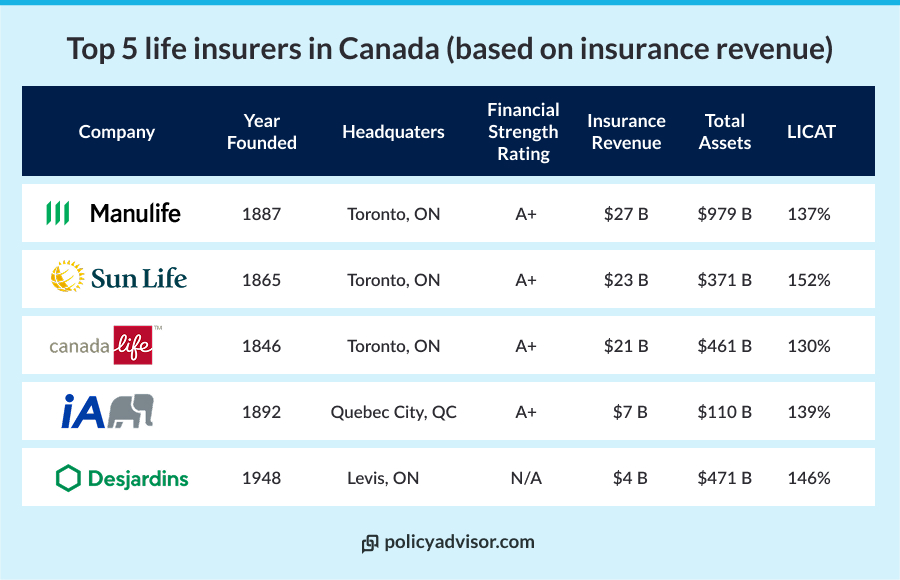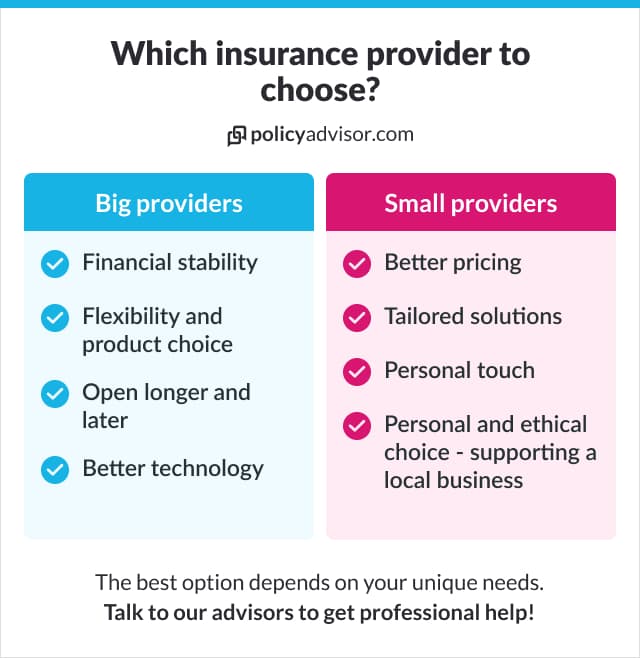Canada has one of the highest rates of multiple sclerosis diagnosis globally, with approximately 90,000 Canadians being diagnosed as MS patients in 2023. Multiple sclerosis (MS) is a disease that damages the protective covering around nerves in the brain and spinal cord.
If you have been diagnosed with MS, you may wonder if you can still get life insurance. However, the good news is that you can obtain life insurance with MS. There are numerous insurance options available for people affected by multiple sclerosis, and you can seek the assistance of a life insurance advisor to guide you through the application process.
This blog explores different life insurance options for MS, eligibility criteria, cost factors, and tips to get the best life insurance for multiple sclerosis in Canada.
What is multiple sclerosis?
Multiple sclerosis (MS) is a chronic neurological disease that affects the brain and spinal cord, damaging the protective myelin sheath around nerve fibers.
When the immune system attacks this sheath, it interrupts the communication between your brain and body, leading to a wide range of symptoms. These symptoms often vary from person to person, making MS an unpredictable health condition.
Doctors typically classify MS into four types:
- Relapsing-remitting MS (RRMS): This type causes temporary flare-ups followed by periods of recovery
- Secondary progressive MS (SPMS): This form begins as RRMS but eventually leads to a steady worsening of symptoms
- Primary progressive MS (PPMS): Symptoms worsen gradually from the start without clear relapses or remissions
- Clinically isolated syndrome (CIS): This is a first neurological episode that may or may not develop into MS
Can you get life insurance with multiple sclerosis?
Yes, you can get life insurance even if you have been diagnosed with multiple sclerosis. Although insurers view MS as a high-risk condition, they still offer coverage options based on how well you manage the disease. Insurance companies evaluate your application based on the type of MS, your age at diagnosis, the frequency and severity of flare-ups, your current treatment plan, and the stability of your condition over time.
If your MS is mild and stable with minimal progression, some insurers may approve you for a traditional life insurance policy with full underwriting. However, if your condition shows rapid progression or causes significant disability, you may either qualify for no-medical plans or face rejection. The non-medical policies do not require a medical exam, but they typically come with higher premiums and limited coverage.
What do MS patients look for in a life insurance policy?
Life insurance for MS patients should typically offer long-term financial security, flexibility, and guaranteed protection. Since MS is a chronic and progressive disease, people want to ensure their loved ones remain financially protected even if their health deteriorates over time.
- Guaranteed coverage despite medical history: Applicants prefer policies like simplified issue or guaranteed issue life insurance that do not require medical exams and offer easier approval
- Stable and predictable premiums: Many choose whole life or term life insurance with fixed premiums to ensure affordability, especially if their condition progresses
- Cash value accumulation: Policies like participating whole life insurance attract MS applicants who want to build savings they can access during emergencies or to supplement retirement
- Flexible underwriting: Individuals look for insurers that assess MS on a case-by-case basis, considering factors like type of MS, symptom stability, and treatment history
- Conversion options: Individuals suffering from MS often value term policies with conversion privileges to switch to permanent coverage later without new underwriting
- Support for legacy planning: Applicants want policies that allow them to leave behind a tax-free death benefit to support family members or settle outstanding debts
What are the life insurance options for MS patients?
People with multiple sclerosis (MS) can choose from several life insurance options in Canada, including traditional or no-medical life insurance policies. Some individuals may also seek life insurance coverage as a part of a group plan.
Here are the most common life insurance options for individuals diagnosed with MS:
Traditional life insurance
If you have multiple sclerosis (MS) and your condition has remained stable for several years, you can qualify for term life insurance through full medical underwriting. Term life offers affordable coverage for a fixed period, such as 10, 20, or 30 years. Some applicants with mild but stable symptoms may also qualify for whole life insurance, which offers lifelong coverage and builds cash value over time.
Insurers actively assess your medical history, possibly requesting an Attending Physician Statement (APS) from your doctor. They may also review specialist reports, MRI results, and neurological assessments. These details help insurers evaluate the severity, stability, and progression of your condition.
If you have relapsing MS with few or no recent flare-ups, you have a stronger chance of securing traditional insurance coverage with competitive premiums and favorable terms.
Simplified issue life insurance
If traditional policies prove difficult to qualify for, you can apply for simplified issue life insurance. This type doesn’t require a medical exam but includes a health questionnaire. Applicants with moderate MS who can still function independently often apply for this life insurance plan
Guaranteed issue life insurance
If you have severe or rapidly progressing multiple sclerosis (MS), are currently undergoing treatment, and require frequent hospitalizations, guaranteed issue life insurance can offer reliable coverage. These policies require no medical exams or health questions, making them ideal for individuals with advanced or unstable MS who may not qualify for traditional plans.
However, guaranteed issue policies include a two-year waiting period for full benefits in case of death due to natural causes. If the insured passes away during this period, the policy typically refunds the premiums paid with interest.
While these plans come with higher premiums and lower coverage limits, they ensure that even high-risk applicants with MS can secure some form of life insurance protection for their loved ones.
Group life insurance
If you’re still employed and your workplace offers group life insurance, you can take advantage of this coverage. Group plans don’t require medical underwriting, so MS patients can obtain life insurance as part of their employee benefits package.
How do insurers evaluate life insurance applications for MS patients?
Life insurance providers in Canada take a highly personalized and cautious approach when reviewing applications from people diagnosed with the condition. To determine your eligibility and premium rates, life insurance companies evaluate several medical and lifestyle factors, such as:
- Age at diagnosis and current age: Applicants diagnosed later in life with minimal symptoms often face fewer underwriting challenges than those diagnosed earlier with a long history of disease progression
- EDSS (Expanded Disability Status Scale) score: A lower score on this neurological disability scale indicates better physical function and improves your chances of qualifying for standard or slightly rated premiums
- Time since the last relapse: Long periods of remission, typically two or more years, signal disease stability, which life insurance providers consider a lower risk
- Frequency of relapses: Frequent relapses or flare-ups raise red flags for insurers, as they indicate active MS and may lead to higher premiums or declined applications
- Duration and stability of remission: Applicants with long-term, stable remission periods without disease progression stand a better chance of securing life insurance coverage
- Type and intensity of treatment: Use of low-risk or stable medication shows effective symptom control. On the other hand, aggressive treatments or frequent changes may signal severe or unstable MS
Medical documentation requirements for life insurance approval
To verify your health status and disease stability, insurers usually request:
- An Attending Physician’s Statement (APS) from your primary care doctor
- Neurologist evaluations and imaging reports (MRIs) to assess lesions, disease activity, and the impact on the central nervous system
- Blood work related to autoimmune function, vitamin levels (e.g., B12 or D), and inflammatory markers
- Proof of occupational therapy or rehabilitation assessments to evaluate day-to-day activities
- A detailed list of current and past medications, especially disease-modifying therapies (DMTs)
Factors that insurers look for in life insurance for MS patients
| Factor | Why it matters |
| Current age | Earlier onset may mean higher risk |
| Type of MS (RRMS, SPMS, PPMS) | Some types are more severe |
| Frequency and severity of relapses | Indicates disease progression |
| Mobility and daily functioning | Shows impact on quality of life |
| Current medications and treatments | Reflects disease management |
| Hospitalizations or ER visits | Higher risk for insurers |
What are the best life insurance companies for multiple sclerosis in Canada?
Many insurance companies in Canada offer life insurance coverage to individuals suffering from MS. These companies include Assumption Life, Canada Protection Plan, Industrial Alliance, Sun Life, and Manulife.
Best life insurance companies for people diagnosed with MS
| Company | Relevant plans for MS Applicants | Coverage | Plan Type |
| Assumption Life | No Medical Life Plus
Golden Protection |
Up to $250,000 Up to $750,000 |
Simplified/No Medical |
| Industrial Alliance | Access Life- Deferred
Deferred Plus Immediate Plus |
Up to $100,000Up to $350,000
Up to $500,000 |
Simplified/No Medical |
| Humania Life | Insurance without medical exam, Guaranteed Issue Life | Up to $300,000 | No Medical, Guaranteed |
| Canada Protection Plan | Deferred Elite
Guaranteed Acceptance Life Deferred Life Simplified Elite |
Up to $50,000
Up to $75,000 Up to $350,000 Up to $500,000 |
No Medical, Guaranteed Issue |
| UV Assurance | Express life insurance
Immediate life insurance |
Up to $150,000 Up to $500,000 |
No Medical, Guaranteed Issue |
*Illustrative life insurance plans for a 35-year-old non-smoking male diagnosed with multiple sclerosis
Does multiple sclerosis increase the cost of life insurance premiums?
Yes, multiple sclerosis (MS) usually increases the cost of life insurance premiums because insurers view it as a higher-risk condition. Underwriters assess how MS affects your long-term health and mortality rate, and most insurers apply premium loadings.
For individuals with mild, well-managed MS, premiums may increase by 25–75%. Moderate or progressive MS may result in premium hikes of 50–100%, and in some severe cases, insurers may decline coverage.
For example, a 40-year-old non-smoking woman with mild MS might pay around $56 per month for a $500,000, 20-year term policy, whereas a man with the same profile may pay about $72-$85 per month.
Applicants with moderate MS can expect life insurance rates in the range of $200–$300 per month due to their higher risk classification. Providing a complete medical history and comparing life insurance quotes can help you secure the most affordable policy.
Tips for getting the best life insurance with multiple sclerosis
If you are looking to get the best life insurance with multiple sclerosis, consider working with an insurance broker, gathering medical records, opting for a no-medical plan, and being honest about your condition.
- Work with a life insurance broker: A life insurance broker can help you choose the right plan as per your medical condition by comparing life insurance quotes from multiple insurers. Moreover, our licensed advisors at PolicyAdvisor will understand your needs and compare life insurance plans from 30+ insurers to help you choose the best plan at affordable rates
- Gather medical records: Make sure to gather all the medical records of your MS diagnosis. Additionally, from treatment history, medications, and proof of disease stability, having detailed documentation can help the insurer better understand your condition
- Apply when stable: Applying for life insurance when your condition is stable can increase your chances of approval. Additionally, insurance providers favour applicants whose MS has been stable for at least a year or two, with no significant progression
- Consider no-medical policies: Consider applying for non-medical policies like simplified issue or guaranteed issue life insurance. Moreover, these life insurance options require fewer to no medical questions and are quicker to qualify for, though they may have limited coverage and higher premiums
- Be honest: Always provide accurate information about your medical condition, diagnosis, treatments, and medication to the insurer. Additionally, not disclosing accurate information at the time of application can lead to claim denial later
How to get affordable life insurance quotes for multiple sclerosis?
Finding the best life insurance quote when you have multiple sclerosis can feel overwhelming, but it’s essential to secure your financial future and provide peace of mind to you and your family. At PolicyAdvisor, our licensed advisors can help you get tailored quotes by comparing plans from 30+ insurers and finding the one that fits your unique needs and budget.
You can also get access to our AI-powered life insurance calculator that can give you monthly plans based on your needs in under a minute! Additionally, connect with our experts today to get life insurance quotes and find the best plan designed just for you.
Frequently Asked Questions
Can you get life insurance after an MS diagnosis?
Yes, you can get life insurance if you have been diagnosed with MS. Many insurers in Canada offer no-medical life insurance policies for patients with MS. However, your coverage and premiums will depend on your health and the progression of your MS.
What if I am declined life insurance for MS?
If you are denied the traditional life insurance option, you can still opt for simplified issue (with few medical questions) or guaranteed issue life insurance (with no medical questions). However, both these options have higher approval chances and are offered quickly.
Is MS a critical illness?
Yes, multiple sclerosis (MS) is considered a critical illness by most insurers in Canada and is included in the list of covered conditions under many critical illness insurance policies. Moreover, since multiple sclerosis is a complex, long-term condition that can significantly impact health and daily living, it meets the criteria for critical illness insurance in Canada, allowing policyholders to receive a lump sum benefit if diagnosed.
What types of life insurance are available for people diagnosed with MS?
People diagnosed with multiple sclerosis can apply for traditional life insurance policies ( with an extensive medical exam), simplified issue (with a short health questionnaire), or guaranteed issue (no medical questions, guaranteed acceptance) policies.
How can I improve my chances of getting life insurance with MS?
To improve your chances of approval, keep your medical condition well-managed, maintain regular check-ups with your doctor, apply when your condition is stable, disclose all the information related to your condition, and consult an experienced broker like PolicyAdvisor for the right plan as per your case.
Does life insurance pay out if I die from MS?
Yes, life insurance pays out the death benefit even if you die from multiple sclerosis. Once your policy is active, you will receive the full death benefit, even if your death is related to MS. However, life insurance does not deny claims due to medical conditions disclosed during the application process; it only denies claims due to misrepresentation.


 1-888-601-9980
1-888-601-9980


